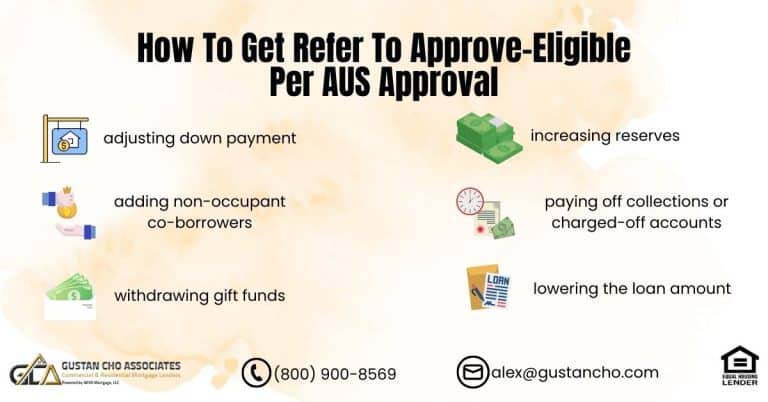Buying House in Different State: A 2024 Guide to Relocation Success
Are you thinking about buying a house in a different state? Whether it’s a job transfer, a desire for better weather, or the need for a fresh start, buying a home in another state can feel both exciting and overwhelming. The process requires careful planning, smart decisions, and understanding state-specific requirements to make your move seamless.
In this updated 2024 guide, we’ll walk you through everything you need to know about buying a house in a different state. From navigating job relocation packages to choosing the best lenders and preparing for your big move, this post has you covered. Let’s dive in!
Why Do People Buy Homes in Different States?
Every year, thousands of Americans buy homes in states where they don’t currently live. Here are some of the top reasons:
- Job Relocation: Companies often transfer employees to new locations, offering relocation packages that include housing assistance.
- Better Weather: Many dream of living in sunny states like Florida, Arizona, or California to escape harsh winters or sweltering summers.
- Cost of Living: Moving to a state with lower taxes, cheaper housing, and overall affordability can free up your budget.
- Family Connections: People often move closer to loved ones or to provide better opportunities for their children.
- Retirement: Retirees frequently downsize or relocate to states with senior-friendly amenities and tax advantages.
No matter your reason, buying a house in a different state requires research, preparation, and the right team to guide you.
Got a Job Transfer? Let Us Help You Buy a Home in Your New State!
Contact us today to explore your mortgage options and get pre-approved for your new home in a different state.
Step-by-Step Process for Buying a House in a Different State
Here’s how to navigate the journey of out-of-state homebuying:
1. Research the Housing Market
Each state has unique real estate trends, property taxes, and regulations. Start by researching:
- Average home prices in the area.
- Market trends (e.g., are home values rising or falling?).
- Property taxes and insurance costs.
- Local school districts, amenities, and job opportunities.
Utilize resources such as Zillow, Realtor.com, and regional real estate websites to get an idea of what is on the market. If you are unable to visit in person, virtual tours can be particularly useful.
2. Get Pre-Approved for a Mortgage
Pre-approval is essential for understanding your budget. It also shows sellers you’re a serious buyer. When applying for a mortgage, consider:
- Local vs. National Lenders: Local lenders may offer better insights into the market, while national lenders can offer competitive rates.
- Relocation Packages: If your employer is assisting, they may cover some closing costs or recommend specific lenders.
- Comparing Rates: Don’t settle for the first offer. Shop around to ensure you’re getting the best deal.
💡 Pro Tip: Use a mortgage broker like Gustan Cho Associates to compare multiple lenders at once and find the best program for your needs.
3. Work with a Real Estate Agent Who Knows the Area
A knowledgeable local agent is your biggest ally when buying a house in a different state. They’ll:
- Help you find homes that match your criteria.
- Explain local market conditions.
- Connect you with trustworthy inspectors, attorneys, and contractors.
Ask for recommendations or look for agents with stellar reviews online.
4. Understand State-Specific Regulations
Real estate laws and taxes vary by state. For example:
- Property Taxes: States like Texas have no income tax but high property taxes.
- Closing Costs: Some states, like Florida, have higher closing costs due to transfer taxes.
- FHA Loan Rules: If you currently have an FHA loan, HUD allows a second FHA loan if you’re relocating at least 100 miles for work.
Consult your lender and real estate agent to guide you through any specific regulations that pertain to your new state.
5. Plan Your Move
Once you’ve found a home, it’s time to plan your move. Consider these tips:
- Budget for Moving Costs: Moving interstate can cost $5,000–$10,000 or more, depending on the distance and volume of belongings.
- Employer Assistance: Check if your relocation package includes moving expenses like transportation, temporary housing, or storage.
- Timing the Move: Coordinate your closing date with your move-in schedule to avoid unnecessary expenses.
Benefits of Buying a House in a Different State
There’s a lot to love about moving to a new state:
- A Fresh Start: Relocating can be life-changing, whether it’s better weather, a quieter neighborhood, or access to new opportunities.
- Tax Benefits: Some states, like Florida, Texas, and Tennessee, have no state income tax, which can save you thousands annually.
- Lower Cost of Living: Moving to areas with affordable housing markets can stretch your dollar further.
For example, relocating from California to Texas could cut your cost of living by up to 40%!
Tips for Job Relocation and Buying a House
Relocating for work? Here are some essential tips:
1. Negotiate Your Relocation Package
Before accepting a relocation offer, ask if your employer will cover the following:
- Real estate commissions or closing costs.
- Temporary housing or storage fees.
- Transportation for your family and vehicles.
2. Don’t Rely Solely on Employer-Preferred Vendors
While many employers recommend movers, Realtors and lenders don’t feel obligated to use them. Shop around to find the best rates and terms.
3. Use Virtual Tools for Long-Distance Homebuying
If you can’t visit your new state in person, virtual tours, 3D walkthroughs, and video consultations can help you evaluate homes from afar.
Relocating Due to a Job Transfer? We’ve Got Mortgage Solutions for You!
Reach out now to discuss your options and get pre-approved for your new home.
Financing Options for Out-of-State Buyers
- Conventional Loans: Conventional loans are the most common option and work well with strong credit and a low debt-to-income (DTI) ratio.
- FHA Loans: FHA loans are great for buyers with lower credit scores or smaller down payments. If you’re relocating for work, you can qualify for a second FHA loan if your move is over 100 miles away.
- VA Loans: Suppose you’re a veteran or active-duty military member. In that case, VA loans offer zero down payment options and competitive interest rates, making them perfect for out-of-state moves.
- Non-QM Loans: For self-employed borrowers or with non-traditional sources of income, loans based on bank statements and the Debt Service Coverage Ratio (DSCR) provide adaptable solutions.
What to Look for in a New State
When choosing your new state, think about:
- Weather: Are you moving for sunny skies or to escape harsh winters?
- Cost of Living: Compare housing, taxes, and general expenses.
- Job Market: Ensure there are ample opportunities in your field.
- Lifestyle: Look for amenities like good schools, parks, and community activities.
Top States for Buying a House in 2024
Here are some of the most popular states for relocation:
1. Florida
- No state income tax.
- Affordable housing in cities like Tampa and Orlando.
- Warm weather year-round.
2. Texas
- Booming job market in cities like Austin and Dallas.
- Low cost of living compared to coastal states.
3. Arizona
- Sunny weather nearly every day of the year.
- Affordable real estate and growing urban areas like Phoenix.
4. North Carolina
- Beautiful landscapes from the mountains to the coast.
- Cities like Raleigh and Charlotte are growing in terms of affordable housing.
Challenges to Watch Out For
- Timing the Move: If you’re selling your current home, ensure you coordinate the sale with your new purchase to avoid paying for two homes at once.
- Managing Long-Distance Transactions: Rely on professionals like your Realtor, lender, and attorney to handle local tasks on your behalf.
- Adjusting to a New State: Give yourself time to acclimate to your new surroundings. Attend local events, join community groups, and explore your neighborhood.
Final Thoughts: Buying a House in a Different State
Buying a home in a different state is a big decision, but with the right preparation, it can be an exciting and rewarding experience. By researching, partnering with the right professionals, and planning your move carefully, you can transition to your new home smoothly.
Ready to start your journey? At Gustan Cho Associates, we specialize in helping homebuyers navigate the complexities of buying a house in a different state. Whether you’re looking for the best mortgage rates, advice on relocation packages, or guidance through the process, we’re here to help.
Call to Action: Let’s Make Your Move Happen!
Contact us today for personalized assistance with your out-of-state home purchase:
- 📞 Call or text: 800-900-8569
- 📧 Email: alex@gustancho.com
Your dream home in a new state is waiting—let’s make it yours!
Frequently Asked Questions About Buying a House in Different States:
Q: What’s the First Step to Buying a House in a Different State?
A: Begin by investigating the real estate market in the new state. Examine the average property prices, tax rates on properties, and overall living expenses. Afterward, obtain a mortgage pre-approval to establish your budget and demonstrate to sellers that you’re a serious buyer.
Q: Can I Buy a House in a Different State Without Visiting in Person?
A: To explore homes remotely, you can use virtual tools like 3D tours, video calls with real estate agents and detailed online property listings. Partnering with a knowledgeable local agent is key.
Q: How do I Find a Good Real Estate Agent When Buying a House in a Different State?
A: Look for agents with experience helping out-of-state buyers. Read reviews, ask for referrals, and choose someone familiar with the local market and its regulations.
Q: Do I Need a Different Mortgage Type to Buy a House in a Different State?
A: No, but lenders may have different requirements depending on the property’s location. Conventional loans, FHA loans, VA loans, and Non-QM loans are all options. Speak to a mortgage broker to find the best fit.
Q: What Relocation Expenses Can My Employer Cover?
A: Many companies offer relocation packages covering moving costs, temporary housing, Realtor commissions, and closing costs. Always review the agreement and negotiate when possible.
Q: Can I Keep My Current FHA Loan and Get Another One When Buying a House in a Different State?
A: Under HUD guidelines, you can have two FHA loans if you relocate over 100 miles for work. Check with your lender to confirm eligibility.
Q: What’s the Biggest Challenge of Buying a House in a Different State?
A: Coordinating the move while managing long-distance transactions can be tricky. Work with a team of professionals—realtors, lenders, and attorneys—to handle local tasks and ensure a smooth process.
Q: How Do I Budget for Moving Costs When Buying a House in a Different State?
A: Costs include movers, transportation, temporary housing, and storage. Depending on distance and volume, these can range from $5,000 to $10,000 or more. Check if your employer will assist with these expenses.
Q: Are There Tax Benefits When Buying a House in a Different State?
A: Absolutely! Certain states, such as Florida and Texas, do not impose a state income tax, potentially saving you thousands each year. It’s important to investigate the tax benefits associated with your prospective location before relocating.
Q: What’s the Best Advice for Someone Buying a House in a Different State?
A: Plan, research the local market and get pre-approved for a mortgage early. Use virtual tools, work with experienced professionals, and budget for moving expenses to ensure a seamless transition.
This blog about “Buying House In Different State Due To Job Transfer” was updated on November 25th, 2024.
Moving for Work? Secure a Mortgage for Your New Home Today!
Contact us now to get pre-approved for your new home in a different location.









